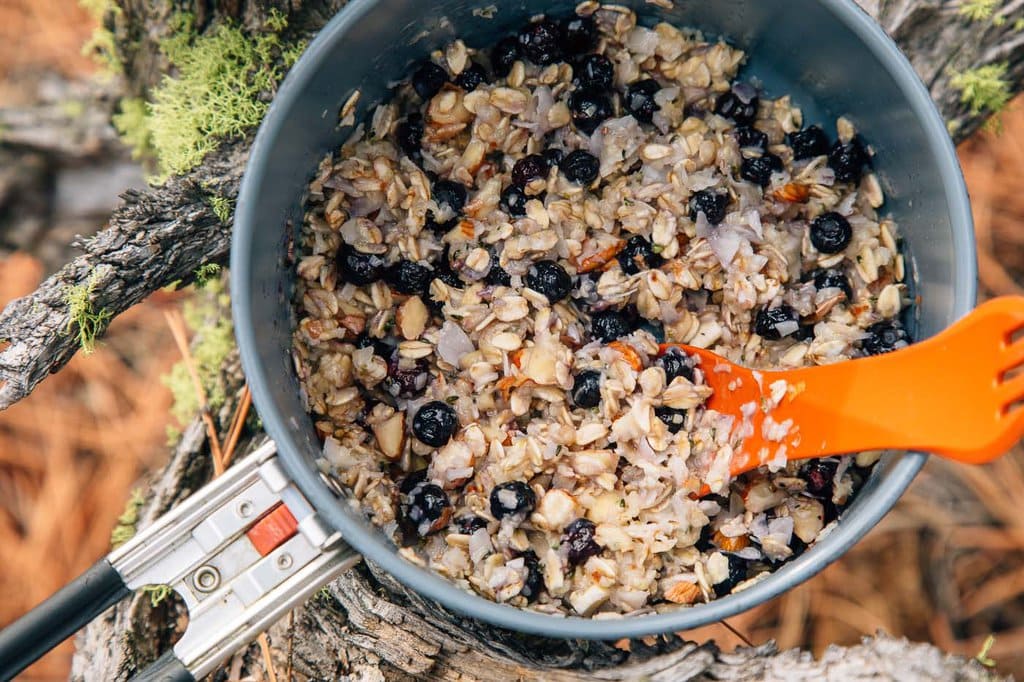
Much like in our everyday lives, life on the trail requires us to fuel our bodies with delicious and nutritious food. And, of course, breakfast is the most important meal of the day. So, if you’re looking for plant-based food ideas while on a hiking trip, you’re definitely in the right place. Here’s how to win the day with the right treats!
Instant Oatmeal
If you’re bringing a portable stove, then oatmeal is definitely the way to go. It’s quick and easy to make, it’s super filling, and its calorie-to-weight ratio is just great. You can choose between different flavor varieties or add nuts, honey, and herbs to spice things up.

The best part is that neither of those things requires much space, and they allow you to experiment with different plant-based food ideas with oatmeal.
Energy Bars
In case oatmeal isn’t your thing, the next best thing is granola or protein bars.

Find several varieties that you like and rotate them throughout the trip. Be sure to choose options that are high in protein and fiber so that you have enough energy throughout the day while on the trail.
Noodles
Although not quite filling, they’re always a great option to lift the spirits and offer an inexpensive and quick meal on the trail.

Add veggies and herbs for extra flavor!
What About Coffee?
Again, if you’re bringing a portable stove, you can also bring a Moka pot for a strong black coffee. Of course, it’s best to do that when you’re traveling in a larger group so you can spread the supplies evenly. If you’re not a fan of black coffee, you can always go with instant varieties. Don’t forget to pack coffee creamer (powdered is better) if that’s how you prefer your daily dose of caffeine. Otherwise, you run the risk of being cranky all day long. The good news is that most creamers fall under the plant-based food category, but don’t forget to check the label anyway.

For those who need their daily cup of tea, or if you’re going to be camping high up in the mountains, you need to pack some tea. Choose green or black tea if you need your caffeine but don’t like coffee, and opt for herbal teas if you drink coffee anyway so you don’t get over-caffeinated.